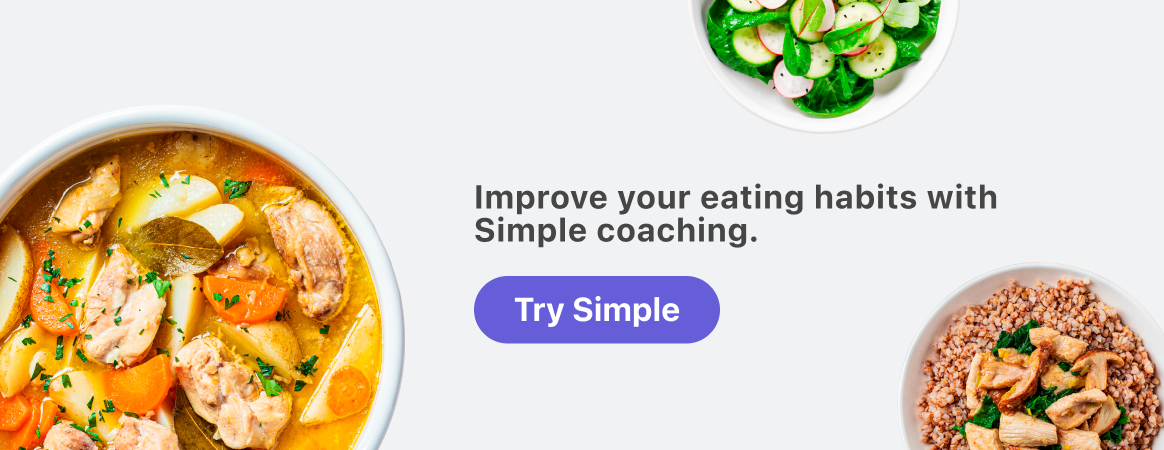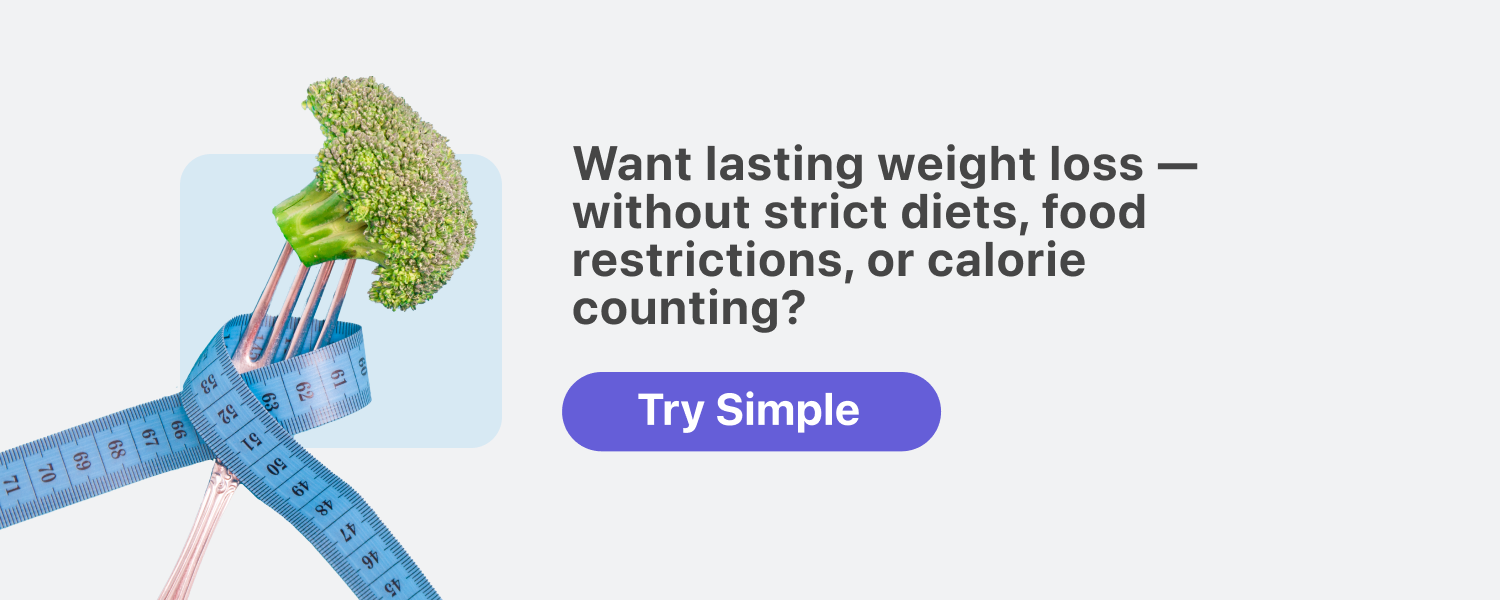Intermittent fasting schedules for beginners

Intermittent fasting is often touted as the magic bullet fix for all sorts of things.
Want to lose weight? Try intermittent fasting. Worried about pre-diabetes? Try intermittent fasting. Desperate to stop snacking on junk in the evening? Try intermittent fasting.
It sure sounds like it’d fix up some of the issues you’re struggling with.
It appeals because it’s not a diet (and Lord knows you’ve had enough of those to last a lifetime).

It feels like it’d help you cut some calories without all the tedium and effort of calorie counting, as well as curb some janky eating habits, like late-night cookie jar raids and all-evening grazing.
And you don’t mind the thought of fasting — actually, it sounds quite pleasant, this idea of giving your belly a break for short periods of time.
So here you are, reading about intermittent fasting for beginners.
It’s not a magic bullet. But it could help you achieve your goals.
Let’s walk through it together.

What is intermittent fasting?
Intermittent fasting is super Simple:
It’s eating, then fasting, rinse and repeat.
The specific eat-fast-repeat routine you follow might be daily or weekly, and each intermittent fasting method has positives and drawbacks, but the fundamental intermittent fasting-ness of each one is the same: for a regular period of time, you take a break from eating.
How does intermittent fasting work?
You’re probably curious about what that “break from eating” actually does. Let’s break it down.
Picture the scene.
You just finished your lunch.
As you get on with your afternoon, your body gets busy digesting and absorbing food.
It calls on insulin to help — because insulin is a hormone that shuttles nutrients where they need to go, like into your muscle and fat cells — and over the next 3–5 hours, your body turns your lunch into useful body stuff, like energy, fat, muscle, and brain power.
What’s not happening here is fat burning.
After that, your body enters the post-absorptive state — your internal version of flopping on the couch in front of the fire for a post-prandial nap — where it’ll stay for 8–12 hours after you eat.
After this stage, insulin levels drop, and you enter a fasted state. Now, your body has the conditions it needs to burn fat.
Right now, you probably never go 12 hours without eating.
Understandably so, food is everywhere. We’re conditioned to eat at the merest prickle of hunger. And food is sometimes the only thing that brings a speck of joy into an otherwise dreary day.
By following an intermittent fasting schedule, we can trigger this rare but natural fat-burning phase in a simple, straightforward way.
Intermittent fasting – how to get started

Beginning an intermittent fasting schedule doesn’t need to be daunting. Just a few simple things can make starting out a real smooth ride.
Find your deeper motivation
Say you start intermittent fasting today. Imagine yourself a few months down the line.
What has improved in your life?
- Are you more comfortable in your body?
- Are you rocking that outfit you’ve always felt too self-conscious to wear?
- Are you standing taller, with a sense of confidence and pride?
- Are you moving better? Do your joints feel less clunky?
- Do you have energy for days?
- Do you feel settled and easy in how you’re eating?
Tap into that vision. Add color and clarity to it. Write it out, draw a picture, make a collage — do it anyhow you like.
A strong, vivid goal is a real ally, especially on the tougher days.
Build your intermittent fasting team
Speaking of allies, we’re always in your corner at Simple.
We’re super experienced at intermittent fasting (and have a real soft spot for beginners). Get started with our quiz, and we’ll walk the intermittent fasting path with you, bringing ideas to inspire you, encouragement for the rough days, and support when you get stuck.
Be prepared
The early intermittent fasting phase can be a little rocky. Being prepared makes so much of a difference in whether you calmly ride out that stage with composure or get reduced to a flailing mess.
Here are the things to be ready for. In the first two weeks of your intermittent fasting schedule, you will most likely feel:
- hunger
- irritability
- tiredness
- coldness
- headaches
- a grumpy belly
At times, you may even feel like this intermittent fasting thing is too hard, but hang in there. These feelings will pass, and there are things you can do to help yourself through them.
Choose your intermittent fasting schedule
As a beginner, you’re free to play around with various intermittent fasting schedules to find the one you like best. The most important factor in choosing a fasting schedule is you: your needs, schedule, goals, and preferences should be the guiding light here.
We’ve outlined the common fasting schedules and how they work below, but there are two factors to take into account before you go full-speed-ahead into any schedule:
- You should always consult with your healthcare team before making any significant changes to your lifestyle or eating habits.
- At Simple, we don’t recommend fasting schedules where you eat nothing or a limited amount of calories for 18+ hours — especially if you’re planning to fast daily or several times a week. These schedules involve more potential risks and safety concerns, and there isn’t really any evidence to suggest they’re more effective than less restrictive approaches.
Now, important clarifiers out of the way, let’s look at the different schedules.
Intermittent fasting 16:8
On a 16:8 fasting schedule, you alternate between 16 hours of fasting and an 8-hour eating window.
This method simply extends the timeframe of the natural daily fast that happens when you’re sleeping. You don’t need to count calories, and you can set up the 8-hour eating window any way you want (yes, you can eat breakfast, and don’t let anybody tell you otherwise!).
If you want to try a shorter fasting window or gradually build up to a 16:8 schedule, you can give other time-restricted fasting schedules — like 12-hour intermittent fasting and 14:10 intermittent fasting — a shot.
The Warrior Diet
The Warrior Diet is a 20-hour fast, followed by a 4-hour eating window.
You’ve probably done it once or twice by accident in your life, like that time you went to your friend’s wedding, and the food didn’t show up for hours (even the balloons looked delicious at that point).
But as a daily approach? Whether you could eat enough in that 4-hour window to satisfy all your nutritional needs is questionable. That’s why this is a schedule we don’t recommend unless you’ve got that medical seal of approval.
The 5:2 diet
The 5:2 diet is a fasting schedule where you eat as you usually would five days per week and eat just 500/600 calories on the other two days.
For some people, it’s easier to restrict calories on just two days per week compared to a daily fasting schedule like 16:8. But for others, a whole day with only 500/600 calories to bolster them causes too much hunger, fatigue, and stress. The increased safety concerns are why we don’t recommend this fasting schedule unless your healthcare team is on board.
Eat Stop Eat
Eat Stop Eat means eating as you normally would on day 1, then fasting until dinner on day 2. You’d eat at least one full meal every day (and that meal is your choice).
A 24-hour fast is a hefty undertaking, and we don’t recommend it without medical supervision. It can make it pretty challenging to meet all your nutritional needs, which, over time, could add up to some serious nutrient deficiencies.
Alternate-day fasting
Alternate-day fasting is similar to 5:2 but somewhat more intense: you fast every other day, and on your non-fasting days, you eat 500/600 calories. This alternating pattern makes for three or four fasting days each week.
That’s a lot of fasting and a lot of restrictions to manage — which means it’s another fasting schedule we don’t recommend without approval from your healthcare team.
Water fasting
Water fasting entails going 24–72 hours drinking only water and going completely without food.
As one of the most restrictive fasting schedules out there, it’s a “no go” from us unless you have medical supervision.
Intermittent fasting and weight loss
If you’re keen to try intermittent fasting as a weight loss plan, you understandably want to know if it delivers! The evidence is fairly compelling at this point:
Intermittent fasting can help you lose weight.[1]
Plenty of research backs this up.[2] One of them, for instance, found that intermittent fasting can create a 3%–8% weight loss over 3–24 weeks.[3] Not bad!
An intermittent fasting schedule can help you reshape your body, too. It’s been shown to preserve muscle mass better than traditional calorie-restricted diets [4] and reduce waist circumference (and therefore belly fat) by around 4%–7%.[3,5]
We’ll be upfront with you here, intermittent fasting’s weight loss results are on par with regular calorie-controlled diets.[6] But, if you’ve tried that method till the cows come home yet never found it to work that well for you, intermittent fasting could be worth a try.
The science also shows us how intermittent fasting generates such steady effects on weight and fat loss by:
- helping you control your appetite [7]
- causing a natural reduction in calorie intake
- changing hormone levels that support weight loss and fat burning, like lowered insulin, increased growth hormone levels, and increased norepinephrine [8,9]
When you’re following a fasting schedule, you are burning more calories and eating fewer calories, and there are natural built-in mechanisms to the fasting process that support you in doing this well.
Intermittent fasting isn’t really a diet schedule, but if it was one, it’d be the diet that lends your body a hand and says, “Hey, let me help you out here!”
Intermittent fasting results
Don’t just take our word for it. For real-life intermittent fasting results, listen to our members’ stories.
Sarah, for instance, told us:
“I’m on day ten of my Simple membership, and I’ve already lost 5 pounds! This is something I am very excited about.”
Nicole had this to say after about a month of intermittent fasting:
I’ve lost 3 kg (6.6. lb) so far, and I haven’t really been on a diet. I just eat whatever I want and as healthy as I can during my eating window.
Ricky has been a fan for several years:
I started Simple at the end of December 2019 at 225 lb with the 16:8 format and soon realized that 18:6 was very doable. I have more energy every day and have only missed 4 days of some type of exercise. Started at 225 pounds and now at 197, thanks to all the great advice.
Alyona also has great things to say about its benefits outside of weight management:
I didn’t fast for weight loss, but rather for better focus and mental clarity. But I can’t say I don’t like the look of more defined abs on my body. Great mood is another noticeable bonus!
What could you achieve?
The benefits of intermittent fasting

Intermittent fasting does more than just help us burn fat and drop pounds. As a health improver, it’s got chops.
Lower risk of type 2 diabetes
Intermittent fasting can improve insulin sensitivity, reduce insulin resistance, lower blood sugar, and decrease fasting insulin levels, reducing your risk of developing type 2 diabetes.[3,10]
Lower inflammation
Inflammation builds up in our bodies and can lead to many chronic health conditions, like high blood pressure or cardiovascular disease. According to some studies, intermittent fasting can reduce inflammation.[11]
A healthier heart
By lowering things like LDL cholesterol, triglycerides, inflammation, blood sugar, and insulin resistance, intermittent fasting supports our heart health.[12]
A smarter, stronger brain
Even your brain benefits — some studies show that intermittent fasting helps promote neuroplasticity and makes the brain hardier against injury and disease.[13]
More mindful eating
How easy is it to graze all evening and eat a bunch of food you don’t need and didn’t really want?
One of the best things about intermittent fasting is how it helps bring more conscious awareness to your eating and food choices.
Even if the only change you make is to stop and start fasting when you’ve decided to, that’s a real, quality investment in how you approach your nutrition.
And, by the simple act of paying attention like this, your food choices will often improve naturally.
The risks of intermittent fasting
Alongside all its health-improvement credentials, there are also some risks to intermittent fasting.
The first two weeks
As we mentioned earlier, that initial phase can be a real kicker.
You’ll likely feel colder, hungrier, grouchier, and more tired than usual.
Plan for that and put some things in place to preserve your wellbeing (and that of your close relationships).
Hormonal changes
The risks of intermittent fasting
Alongside all its health-improvement credentials, there are also some risks to intermittent fasting.
The first two weeks
As we mentioned earlier, that initial phase can be a real kicker.
You’ll likely feel colder, hungrier, grouchier, and more tired than usual.
Plan for that and put some things in place to preserve your well-being (and that of your close relationships).
Hormonal changes
The effect of intermittent fasting on men and women differs in some critical ways.
Due to how intermittent fasting and hormones interact, women can be more sensitive to it. Female bodies tend to guard energy a little more fiercely and protect themselves against shifts in energy balance. If this affects you, start out with shorter fasts — we recommend 12 hours — and work up to longer fasts if your body feels happy and supported.
Regardless of gender, approach your intermittent fasting schedule with a good dollop of care for your body.
Overeating “snaccidents” may occur
It’s really easy, especially as a beginner following an intermittent fasting schedule, to swing out of a fasting period straight into an “eating everything you can lay your hands on” period. Darn hunger can get you like that!
When you’re just starting, no doubt you’ll make some rookie intermittent fasting mistakes, and this will likely be one of them. It happens! Chalk it up to experience and try again.
Is intermittent fasting safe?
Intermittent fasting is safe, but it’s not safe for everybody. Some people should give all intermittent fasting schedules a wide berth. Steer clear of intermittent fasting unless you have your doctor’s permission if you:
- have a body mass index (BMI) in the “underweight” category (<18.5)
- are pregnant, breastfeeding, or trying to conceive
- have (or are at risk of having) an eating disorder or have a history of one
- Are extremely active
- are under 18 years old or are 80 years or older
- have diabetes or a thyroid condition
- take medications (especially those that affect blood glucose or blood pressure levels)
- have anemia
5 tips for success with intermittent fasting

- Make your fasting schedule work for you
The schedule that works best is the schedule that works for you, so set your fasts up in a way that fits your life.
If you want more food-free time in the evenings, schedule your fasting for after dinner. But if evening is a time you regularly socialize with your friends and you don’t want to crash that vibe, fast later.
Your fast, your choice.
- Remember, hunger won’t last forever
Yes, hunger will show up at times, but it doesn’t have to derail you. There are ways to hack hunger while fasting, so experiment with things that distract and engage your mind and body so that hunger fades into the background.
- Drink enough water
One hunger-hacking action: drinking enough water. It can help you feel full, unfog your brain, and keep you hydrated (which, when you’re eating less, matters more).
- Enlist some support
Don’t go it alone. Lifestyle changes take effort, and when you’re working hard to make lifestyle changes, you need backup!
Talk to whoever’s on your support team about your fasting schedules and ask them to help you stick with it. Even if it’s just someone to chat with on a low-mojo day, having a friend on the journey can make a real difference. (And remember, you’ve always got a friend in us.)
- Don’t worry about intermittent fasting meal schedules
A solid fasting diet for beginners is simple:
Just eat as you normally do.
Intermittent fasting doesn’t require any elaborate diet plans. You don’t have to make any more changes to your diet than the addition of a regular fast to your day or week.But if you want to, we can help! Use our Simple app to track your food, and we’ll make meal planning easy by suggesting some food choices that’ll give your fasting results an extra edge. Get started by taking our Simple quiz.
The best intermittent fasting schedule for you
Now you’re at the end of our beginner’s guide to intermittent fasting, let’s draw some conclusions.
First question:
Is intermittent fasting right for you?
If you’re not on this list, and intermittent fasting hits your goals square on the nose, then it’s a safe and smart move to test intermittent fasting out. From there, it’s a question of how you feel about fasting itself. Our suggestion here:
Don’t think too much about it. Try it instead.
Fasting often feels far more daunting in the thinking than it does in the doing. More often than not, people find it much easier than they expect!
Second question:
Which intermittent fasting schedules work best for beginners?
Truly, they can all work for beginners and experienced fasters alike.
The way to determine which fasting schedule is right for you is to think about what would suit your lifestyle best.
- What would work best with your family life?
- How about your social and work commitments?
- What feels most simple and doable?
Put those questions into the hopper and see which schedule spits out! Then, give it a whirl and find out how it helps you bring your vision of who you want to become to life.
If you’re a beginner, you should start intermittent fasting by:
- choosing a fasting schedule
- being prepared for a bumpy first couple of weeks
- finding your deeper motivation
Then simply get started with your first fast!
Yes, no, either! Whether it’s better to skip breakfast or dinner in intermittent fasting is down to which meal you like eating most and which you can skip easiest.
You can drink coffee or tea (with no added milk or sugar) or water while fasting. Herbal teas and lemon water are also fair game.
Check out our guide to what you can drink while fasting — it’s got all the details.
A week after intermittent fasting, you might feel hungry. Or, you might be feeling more on top of your hunger pangs.
You might feel irritable. Or, your energy might be on an upward swing.
You might have lost some weight. Or, your body might be taking a little longer to nestle into the groove.
For the real 101 on what happens to your body a week after intermittent fasting, try it out and see.
Sleeping does count as fasting, yes!
This is one of the reasons we love 16:8 and other time-restricted fasting approaches — not eating is a natural state when you’re asleep. Lining up your sleep window with your fasting window means you don’t have to work so hard!

- Seimon RV, Roekenes JA, Zibellini J, Zhu B, Gibson AA, Hills AP, et al. Do intermittent diets provide physiological benefits over continuous diets for weight loss? A systematic review of clinical trials. Mol Cell Endocrinol. 2015 Dec 15;418 Pt 2:153–72.
- Johnstone A. Fasting for weight loss: an effective strategy or latest dieting trend? Int J Obes . 2015 May;39(5):727–33.
- Barnosky AR, Hoddy KK, Unterman TG, Varady KA. Intermittent fasting vs daily calorie restriction for type 2 diabetes prevention: a review of human findings. Transl Res. 2014 Oct;164(4):302–11.
- Varady KA. Intermittent versus daily calorie restriction: which diet regimen is more effective for weight loss? Obes Rev. 2011 Jul;12(7):e593–601.
- Wilkinson MJ, Manoogian ENC, Zadourian A, Lo H, Fakhouri S, Shoghi A, et al. Ten-Hour Time-Restricted Eating Reduces Weight, Blood Pressure, and Atherogenic Lipids in Patients with Metabolic Syndrome. Cell Metab. 2020 Jan 7;31(1):92–104.e5.
- Trepanowski JF, Kroeger CM, Barnosky A, Klempel MC, Bhutani S, Hoddy KK, et al. Effect of Alternate-Day Fasting on Weight Loss, Weight Maintenance, and Cardioprotection Among Metabolically Healthy Obese Adults: A Randomized Clinical Trial. JAMA Intern Med. 2017 Jul 1;177(7):930–8.
- Ravussin E, Beyl RA, Poggiogalle E, Hsia DS, Peterson CM. Early Time-Restricted Feeding Reduces Appetite and Increases Fat Oxidation But Does Not Affect Energy Expenditure in Humans. Obesity . 2019 Aug;27(8):1244–54.
- Blackman MR, Sorkin JD, Münzer T, Bellantoni MF, Busby-Whitehead J, Stevens TE, et al. Growth hormone and sex steroid administration in healthy aged women and men: a randomized controlled trial. JAMA. 2002 Nov 13;288(18):2282–92.
- Zauner C, Schneeweiss B, Kranz A, Madl C, Ratheiser K, Kramer L, et al. Resting energy expenditure in short-term starvation is increased as a result of an increase in serum norepinephrine. Am J Clin Nutr. 2000 Jun;71(6):1511–5.
- Sutton EF, Beyl R, Early KS, Cefalu WT, Ravussin E, Peterson CM. Early Time-Restricted Feeding Improves Insulin Sensitivity, Blood Pressure, and Oxidative Stress Even without Weight Loss in Men with Prediabetes. Cell Metab. 2018 Jun 5;27(6):1212–21.e3.
- Wang X, Yang Q, Liao Q, Li M, Zhang P, Santos HO, et al. Effects of intermittent fasting diets on plasma concentrations of inflammatory biomarkers: A systematic review and meta-analysis of randomized controlled trials. Nutrition. 2020 Aug 12;79-80:110974.
- Yang F, Liu C, Liu X, Pan X, Li X, Tian L, et al. Effect of Epidemic Intermittent Fasting on Cardiometabolic Risk Factors: A Systematic Review and Meta-Analysis of Randomized Controlled Trials. Front Nutr. 2021 Oct 18;8:669325.
- Mattson MP, Moehl K, Ghena N, Schmaedick M, Cheng A. Intermittent metabolic switching, neuroplasticity and brain health. Nat Rev Neurosci. 2018 Feb;19(2):63–80.
